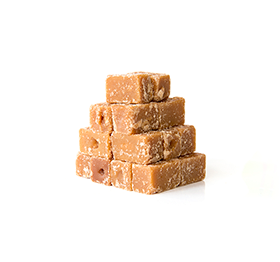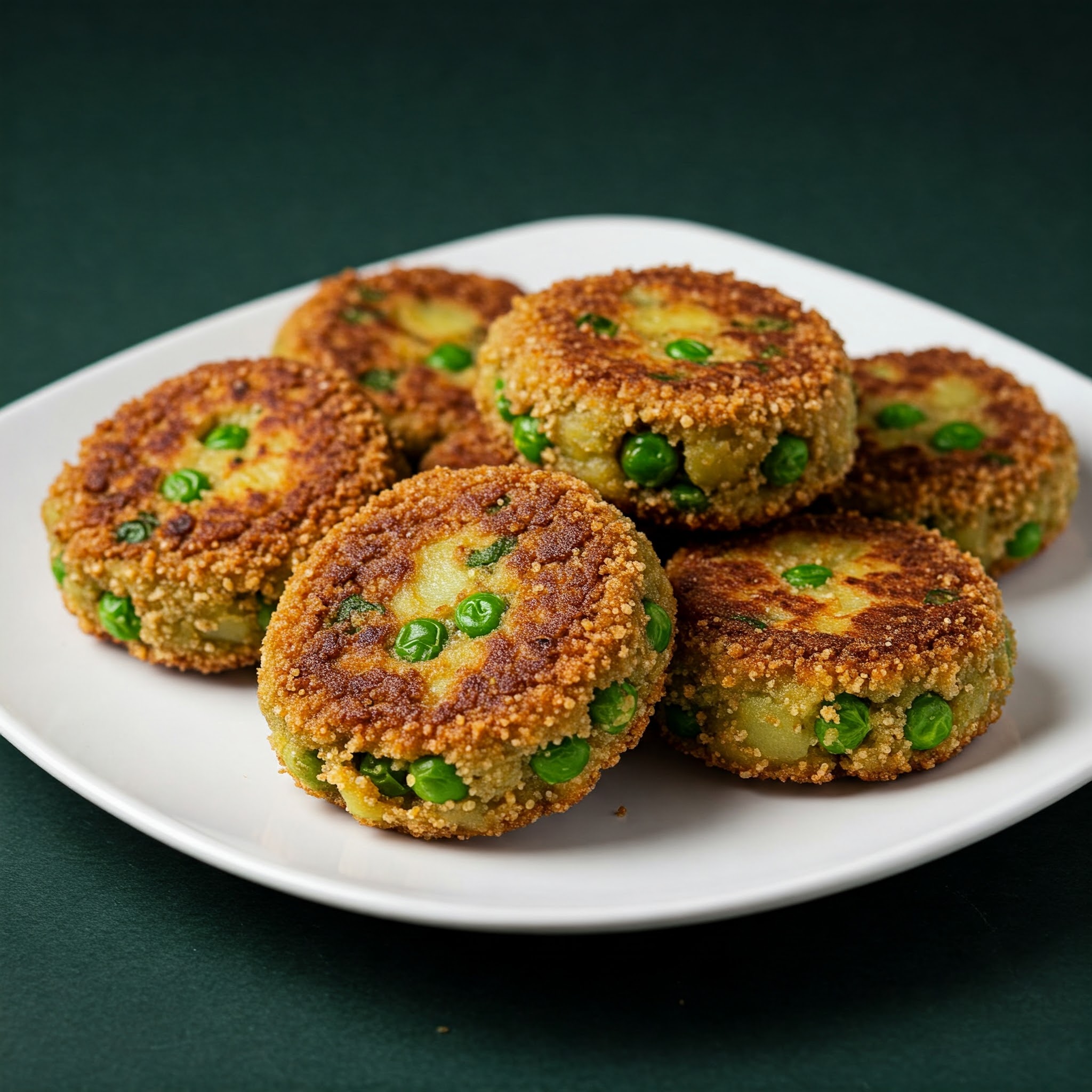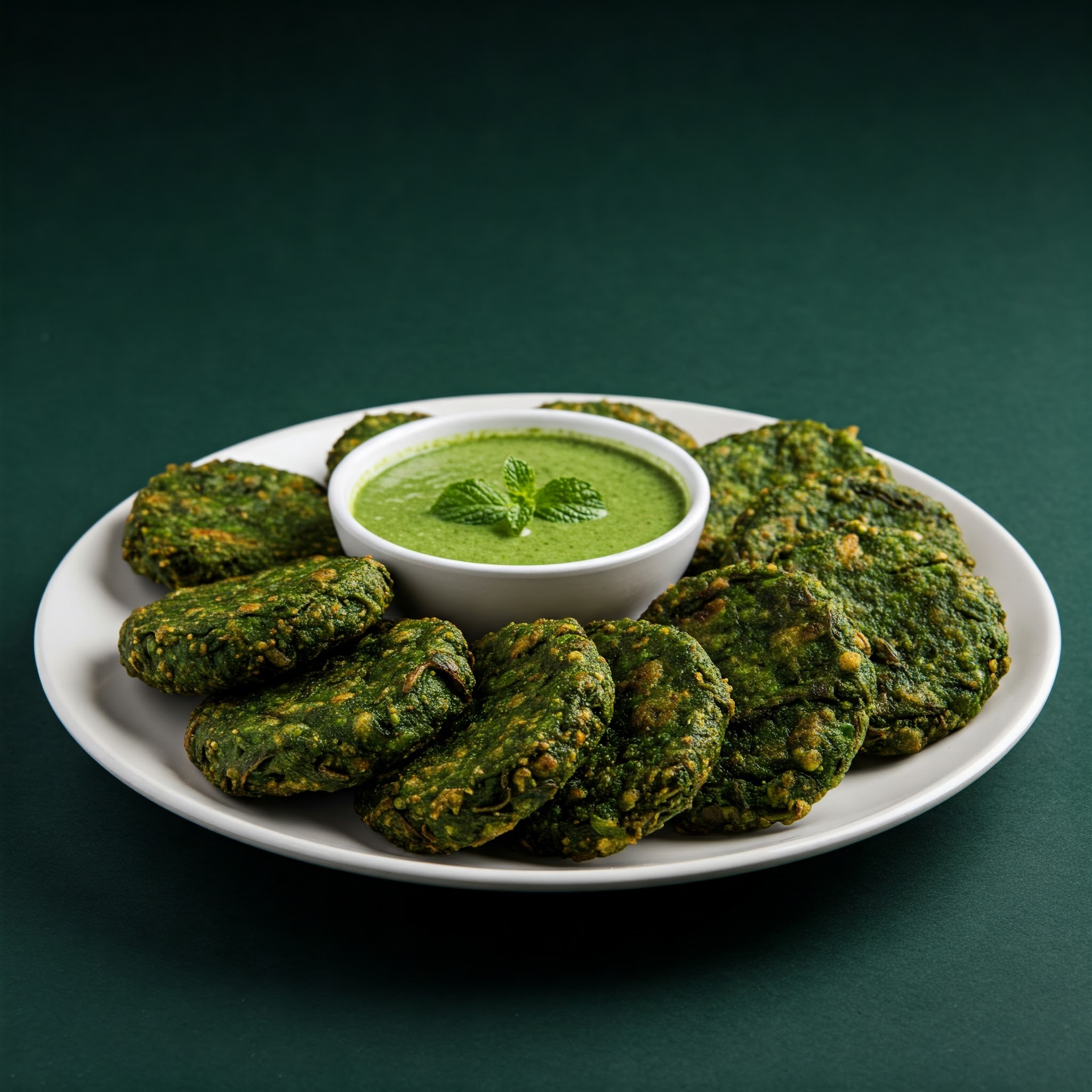Jaggery (गुड़)
Gud, Jaggery, cane (Saccharum officinarum)

About Jaggery
Jaggery: A Sweet Tradition with Timeless Benefits
Jaggery, often referred to as the "traditional sweetener" of India, holds a cherished place in the hearts and kitchens of millions. A natural, unrefined sugar derived from the sap of sugarcane or date palms, jaggery has been used for centuries not just as a sweetener, but also as a healthful, nutritious alternative to refined sugars. With its deep, rich flavor and complex taste profile, jaggery has managed to carve out its unique identity in the Indian culinary landscape.
Types of Jaggery:
Jaggery comes in a variety of forms and flavors, with regional differences giving it its distinct characteristics. The two most common types of jaggery in India are Sugarcane Jaggery and Date Palm Jaggery. The sugarcane version is widely available across the country and is usually darker in color with a more intense flavor. Date Palm Jaggery, also known as "Patali" in Bengali or "Nolen Gur," is especially popular in the Eastern states of India like West Bengal and Odisha. Its smoother, milder flavor and soft texture make it ideal for making sweets and desserts. Both varieties are rich in minerals and nutrients, but the date palm jaggery is considered a bit more indulgent, owing to its aromatic sweetness.
Detailed Culinary Uses:
Jaggery is not just a sweetener; it’s a versatile ingredient that can be used in both sweet and savory dishes. In desserts, jaggery is often used to enhance the flavor of traditional sweets like Gulab Jamun, Ladoo, Halwa, and Payasam. In fact, the rich, caramel-like flavor of jaggery adds a depth that white sugar simply cannot provide. Its smoky undertones bring warmth to winter delights, making it the ideal ingredient for cozy, comforting sweets.
On the savory side, jaggery is often paired with spices in dishes like Dal Tadka, Vegetable Curries, and Chutneys. It balances out the heat from chilies and the tanginess from tamarind, providing a harmonious sweetness. In Indian street food, jaggery is often found in Pani Puri, Bhel Puri, and Dhokla, adding a delightful zing to these popular snacks.
Moreover, jaggery has found its way into beverages such as buttermilk, chai, and the classic "Ginger Tea". Its subtle sweetness enhances the flavor of the drink, while simultaneously offering numerous health benefits.
Incorporate Jaggery in your Daily Menu:
To Include Jaggery in your daily menu, logon to planmeal.com and discover how you can create nutritious, balanced meals with the perfect touch of sweetness!
Health Benefits:
While jaggery is often cherished for its taste, its health benefits make it a standout ingredient. Unlike refined sugars, jaggery is packed with vitamins and minerals such as iron, magnesium, potassium, and calcium. Studies have shown that jaggery is an excellent source of iron, making it a great remedy for anemia. Its high iron content helps increase the red blood cell count, promoting better circulation and overall energy levels.
Jaggery also plays a vital role in digestive health. It is rich in dietary fiber, which aids in regulating bowel movements and preventing constipation. The presence of antioxidants in jaggery helps combat oxidative stress and inflammation, making it a great choice for enhancing immunity and reducing the risk of chronic diseases.
Its anti-inflammatory properties are also beneficial for the respiratory system. In traditional medicine, jaggery has been used as a natural remedy for colds and coughs. Consuming a piece of jaggery with warm water can soothe a sore throat and relieve congestion.
The Heart of Wellness: Jaggery
Not only does jaggery sweeten your food, but it also enriches your body with essential nutrients, offering a perfect blend of taste and health. It’s a superfood that connects you to the earth’s natural goodness, keeping your body healthy, vibrant, and strong.
Jaggery - Nature’s sweetness, with a health boost!
How Important is Jaggery?
Jaggery is a natural sweetener that offers more than just sweetness to your food. It is rich in essential nutrients like iron, calcium, magnesium, and potassium, making it a much healthier alternative to refined sugar. Unlike white sugar, jaggery retains the molasses, which is where most of its nutritional value lies. It is known for its ability to balance the body’s doshas—Vata, Pitta, and Kapha—according to Ayurvedic principles.
Vata Dosha:
For individuals with a dominant Vata dosha, jaggery is highly beneficial. Vata is associated with qualities like dryness, coldness, and lightness, so jaggery helps to balance these by providing warmth, moisture, and nourishment. It helps soothe the digestive system, promoting better absorption of nutrients and aiding in the prevention of constipation. The natural sweetness of jaggery also helps pacify the airy nature of Vata, bringing a sense of grounding and stability.
Pitta Dosha:
For those with a Pitta dosha, jaggery can be used in moderation. Pitta is linked to qualities like heat, sharpness, and acidity, so consuming jaggery helps to balance these fiery qualities. It has cooling properties and aids in detoxification by promoting the elimination of toxins from the body. Jaggery also supports the digestive system and is known to prevent ulcers, making it an excellent choice for balancing Pitta’s intense digestive fire.
Kapha Dosha:
For Kapha dosha individuals, jaggery should be consumed sparingly. Kapha is associated with qualities such as heaviness, coolness, and sluggishness, and while jaggery provides sweetness, it is important to be mindful of the quantity. In moderation, jaggery can support Kapha by improving digestion, boosting energy levels, and balancing the body's moisture levels. It can also help to relieve congestion and reduce the accumulation of excess mucus.
Conclusion:
Incorporating jaggery into your diet in the right quantities based on your dosha can bring numerous health benefits. It is a versatile, natural sweetener that not only satisfies your taste buds but also supports overall wellness. Whether you're looking to balance Vata’s dryness, cool Pitta’s heat, or ease Kapha’s heaviness, jaggery can be a wholesome addition to your diet.
How to Store Jaggery
To store jaggery, keep it in a cool, dry place away from moisture. Use an airtight container to prevent it from absorbing humidity. You can also wrap it in a cloth or plastic wrap for extra protection. If stored properly, it can last a long time.
Shelf Life of Jaggery
Jaggery has a shelf life of about 12 to 18 months when stored in a cool, dry place. Keep it in an airtight container to prevent moisture absorption and maintain its quality.
How to Check Jaggery Before Buying
When checking jaggery at a local vendor, look for a rich, golden-brown color, indicating good quality. Avoid jaggery that appears too dark, as it may be overprocessed or contain impurities. The texture should be firm and slightly sticky, but not wet or crumbly. Smell it—fresh jaggery has a sweet, pleasant aroma. Break a piece; it should crumble easily but not be powdery.
While buying in bulk may seem economical, it's best to purchase only what you can consume within a few months, as jaggery can absorb moisture and become hard or spoil if not stored properly. If you do opt for bulk, ensure you have an airtight container to maintain its freshness. Always plan your meals ahead and check your weekly menu on planmeal for smart purchasing decisions!
Explore
Explore our services and take your business to the next level.
Recent Posts

Kuttu Ke Pakore are the perfect addition to a balanced weekly menu, offering bot...

Suji Aloo Sandwich is a perfect blend of comfort and nutrition, making it a grea...

Potato, Peas, and Kuttu Cutlets are a perfect addition to your weekly menu, offe...

Savor the warmth of Palak Dal Khichdi, a nourishing and comforting dish that bea...

Spinach Kuttu Pakode are a fantastic addition to your weekly meal plan, offering...
Ready for a Healthier You?
Take control of your wellness! Get a customized meal plan that fits your lifestyle. It's time to eat smarter, feel better, and transform your life!
Get Your Plan Now!Already a member? Login and start now!
Nutrition Facts
Serving Size:
Servings Per Container: 1
| Amount Per Serving | ||
|---|---|---|
| Calories | 353.72 | |
| Fat | ||
| Saturated Fat | ||
| Trans Fat | ||
| Cholesterol | 0 | |
| Sodium | 25.38 | |
| Carbs | 84.57 | |
| Fiber | ||
| Sugar | 0 | |
| Protein | 0.1 | |
| VitaminD | ||
| Calcium | 107 | |
| Iron | 4.63 | |
| Potassium | 488 | |
* Percent Daily Values are based on a 2000 calorie diet.
* Percent Daily Values are based on a 2000 calorie diet.




